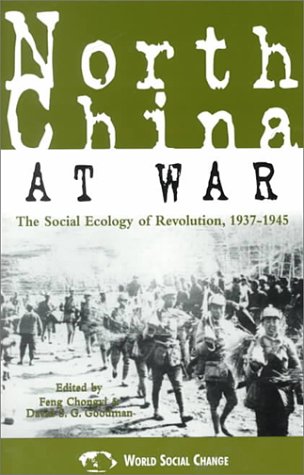Asia/Pacific/Perspectives
2 total works
Social and Political Change in Revolutionary China
by David S. G. Goodman
Published 6 September 2000
This history provides the first book-length study and the first county-level analysis of social and political change in the Taihang Base Area during the key years of the War of Resistance to Japan, which was instrumental in the establishment of the People's Republic of China. David Goodman explores revolution as process, arguing that the Chinese Communist Party was successful because of its management of revolutionary incrementalism. In particular, he examines the roles and interactions of a variety of groups, highlighting the activities of urban intellectuals, teachers, and peasant small-holders as agents of change. Based on new sources of information-including materials from the Taihang Base Area recently republished by the CCP, documentation and reports from the Taiyuan Archive that have not been made publicly available, and interviews with veterans of the Taihang Base Area-this meticulously researched work deepens our understanding of the social and political origins of the Chinese revolution by considering how both the rural population and the CCP adapted and changed within that process.
During the War of Resistance to Japan from 1937 to 1945, the Chinese Communist Party (CCP) grew from a marginalized political force on the geographical periphery of Chinese society to a position of national leadership. Explaining this transformation has long been a major point of contestation among scholars. This groundbreaking volume draws on newly available documentary sources to explore key facets of the partyOs move to power. Leading scholars from China and the West compare the varied experiences of the CCP_and its interactions with local society_in all the border regions and base areas of resistance to the Japanese invasion on the North China battlefront. Eschewing grand theory, the authors develop a Osocial ecology of revolutionO that traces the relationship between local conditions and patterns of social and political change. By individualizing the experience of the party by locality, period of the war, and stage in the development of mobilization and rule, the book highlights the importance of the military situation, CCP internal control mechanisms, peasant resistance, as well as the roles played by the Nationalist Party and intellectuals in the development of the border regions and base areas.

